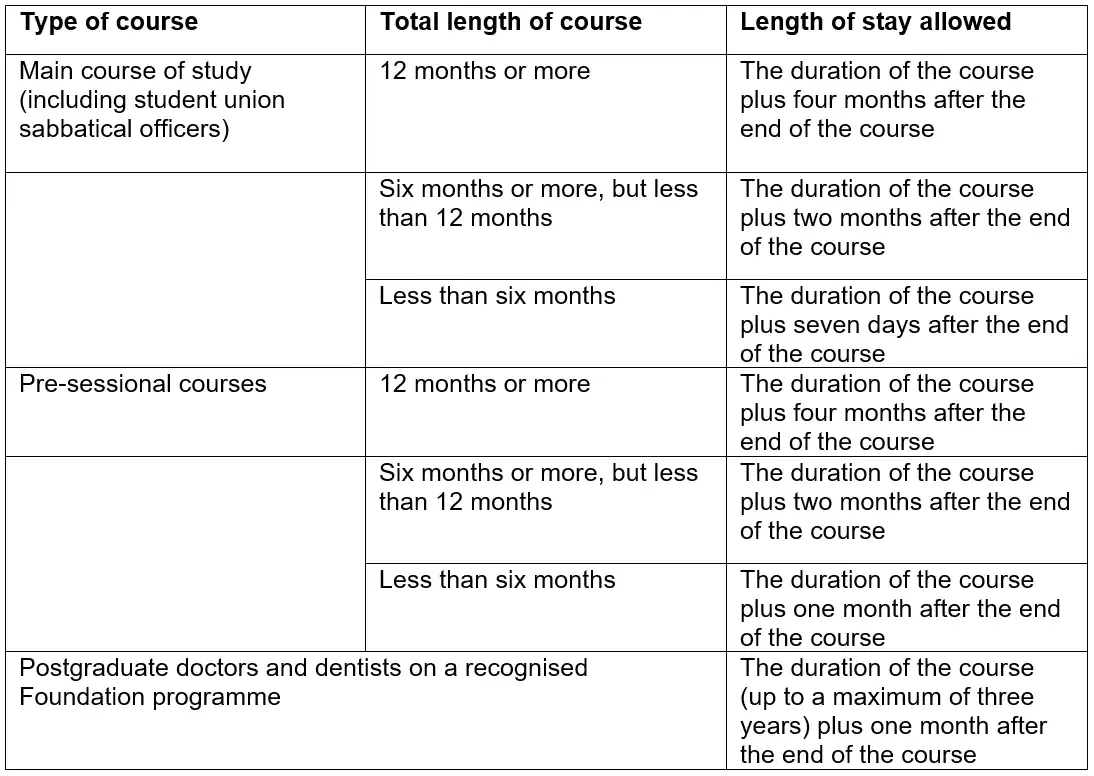Table of contents

Share
By Guest Blogger, Sarah.
For any student, moving away from home to pursue studies can be daunting. The culture shock is inevitable as travelling from even a relatively similar European country exposes our nations nuisances which can vary from humour to culture and from dialect to custom. No different is the shock that comes to most international students who are approaching their graduation and whose time left in which to secure a job wears thin. Indeed, perhaps this is the most arduous hurdle for the newly graduated international student to surpass.
From an aspirational perspective, London appears attractive with its new cultural attitudes and languages and its vibrant cosmopolitan mix, yet this does not make an international applicant an automatic match to the capital’s lifestyle especially when rendered stagnant by the confines of post-study visas[1]. This was less so the case prior to 2012 in which the government abolished the Tier-1 Post-Study Work visa (Tier 1 PSW). Before the changes, student graduates were allowed to remain in the UK and work for two years. This period allowed for students to gain experience; they could find a job, progress and be sponsored for a longer stay[2]. However, since the changes, there has been a big drop in the number of people moving from study visas to Tier 2 Work visas[3].
The table below explains how much time a Tier 4 (General) Student can come to the UK for[4]:

Now these international graduates face a more formidable task. International students account for almost a fifth of those in higher education[5]. However, as distinct from British and EU-nationals, non-EU students, whose course runs the duration of 12 months or more, have but only a maximum of four months after the end of their course to secure employment. If they fail to gain company sponsorship for their next Tier 2 (General) Visa or switching into another visa category based on qualifying personal circumstances, they will have to return to their home country. Indeed, the eligibility criteria for obtaining a Tier-2 visa and moving from a student visa to a work visa is rather strict as the applicant must secure all of the following[6]:
- A willing and able employer who is a licensed Tier 2 Sponsor
- A job offer at a particular skill level by an employer with a Tier 2 Sponsor Licence
- A Sponsored job which pays the minimum of £20,800 (or higher depending on experience level)
- A minimum of £945 in Maintenance funds, unless your Sponsor is A-rated and certifies on your behalf
Unsurprisingly, the figures reveal the difficulty of complying with such criteria as in 2014, only 5,639 students were granted leave to stay in the UK under a Tier-2 visa[7]. Alternatively, the figures suggest optimism as finding work as an international student is at least not impossible.
Need help in applying for Tier 2 (General) work visa, extending Tier 4 Student visa or switching into another UK visa category? Book a consultation with QC Immigration to discuss further.

For international students, it appears there is very little choice in terms of the number of employers they can potentially work for given the visa sponsorship rules on top of an already competitive job market. Indeed, it is important to point out that not every foreign graduate looks to work in the UK and that there is room throughout penultimate years to attain internships and vacation schemes.
However, this does not always soften the blow. I spoke to two undergraduate international students going into their final year of university study to ask them how they felt about the pressures of obtaining a post-study visa and the four-month time limit in which to do so.
“It’s difficult. British people who are residents of their country are themselves very pressured to secure a job upon graduation – that’s only half of the experience for an international student - without some sort of employment post-graduation, it's a one-way ticket home. While there is nothing wrong with going home, I am keen to kick-start my career at one of the world's main financial hubs - London. To secure a job however is extremely difficult; the competition has people tearing each other apart”.
- Seif Elfar, an Egyptian law student at the University of Bristol
“I think that the shorter time period definitely makes it harder to apply to many jobs, as well as since the intake is during our university term, adding on even more pressure…we spend three years in a country… out within four months when we are unsuccessful in finding a job straight out of university, especially when most companies expect a bit more experience”.
- Anonymous student from Bahrain, studying law at the University of Bristol
Reports state that international students contribute £2.8bn in fees and consumer spending, supporting nearly 70,000 jobs in London*. Yet, as the aforementioned students have expressed, the complexity of the immigration system and its constraints have impacted on their experience as students in the UK.
The reputation of our universities ensure that we will remain magnets for some of the brightest students around the world. This pull only adds to our academic quality and competitive ranking which international students help maintain.
QC Immigration has vast experience assisting both students and employers alike in Tier 2, Tier 4 and Tier 5 applications. Book your consultation with us to discuss further.
* UK Council for International Student Affairs. 2017. Working after studies. [ONLINE] Available at: https://www.ukcisa.org.uk/ Information--Advice/Working/Working-after-studies [Accessed 25 July 2017].
References
[1] The Guardian. 2012. How do international students and graduates fare in the UK job market? [ONLINE] Available at: https://www.theguardian.com/careers/international-graduates-uk-job-market [Accessed 25 July 2017].
[2] HUFF POST United Kingdom. 2016. International Students in the UK Are Currently Faced With a Thinly-Veiled Post-Study Expulsion Order. [ONLINE] Available at: http://www.huffingtonpost.co.uk/mostafa-rajaai/international-students_b_9347316.html. [Accessed 25 July 2017].
[3] The Guardian. 2017. Anxious international students turn away from UK. [ONLINE] Available at: https://www.theguardian.com/education/2017/jan/04/anxious-international-students-turn-away-from-uk. [Accessed 25 July 2017].
[4] GOV.UK (2017). Tier 4 of the Points Based Sytem - Policy Guidance. Home Office, pp.29-30. https://www.gov.uk/government/uploads/system/uploads/attachment_data/file/623341/T4_Migrant_Guidance_29_June_2017.pdf
[5] HESA. 2015. Data and analysis. [ONLINE] Available at: https://www.hesa.ac.uk/data-and-analysis#non-uk [Accessed 25 July 2017].
[6] GOV. UK. 2013. Tier 2 (General) visa. [ONLINE] Available at: https://www.gov.uk/tier-2-general [Accessed 25 July 2017].
[7] UK Council for International Student Affairs. 2017. Working after studies. [ONLINE] Available at: https://www.ukcisa.org.uk/Information--Advice/Working/Working-after-studies [Accessed 25 July 2017].


_2ajbUI.webp)
